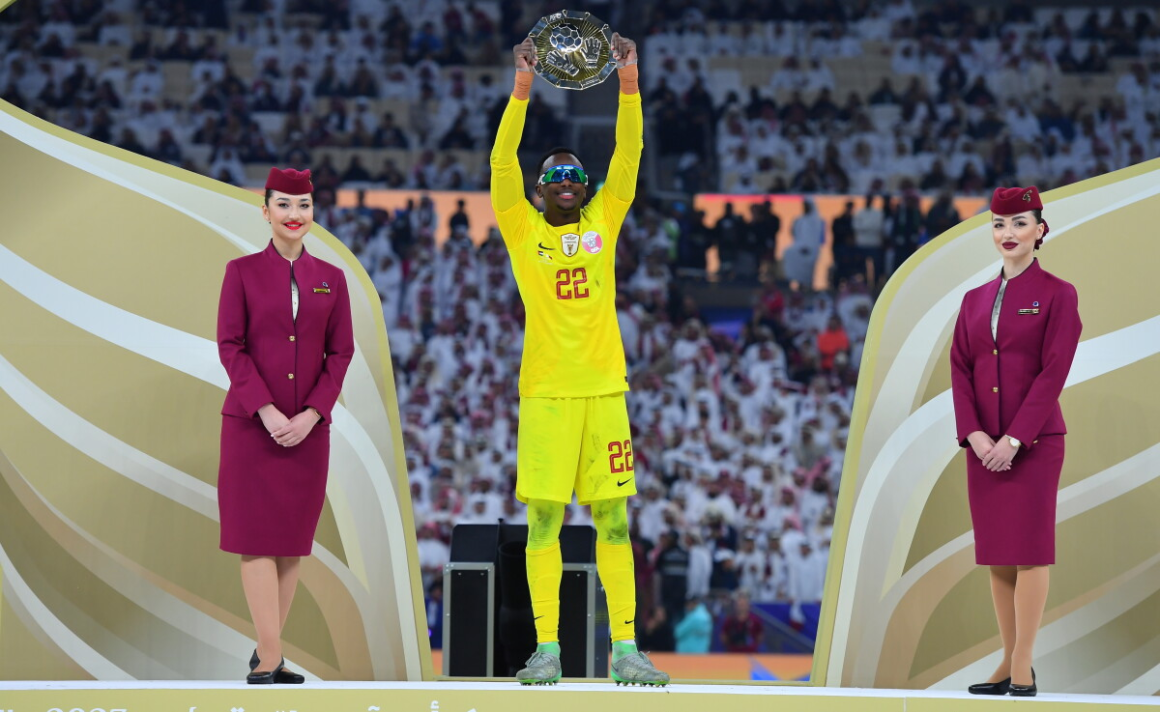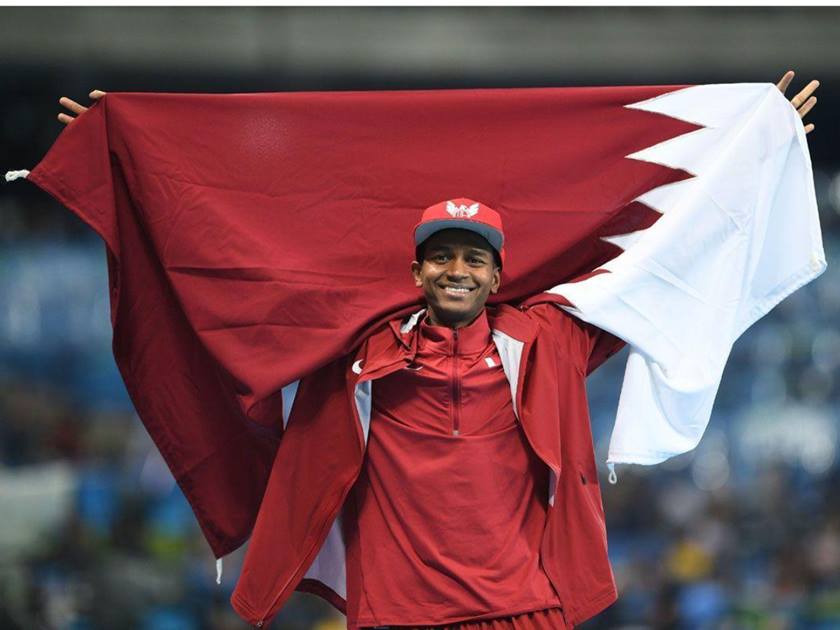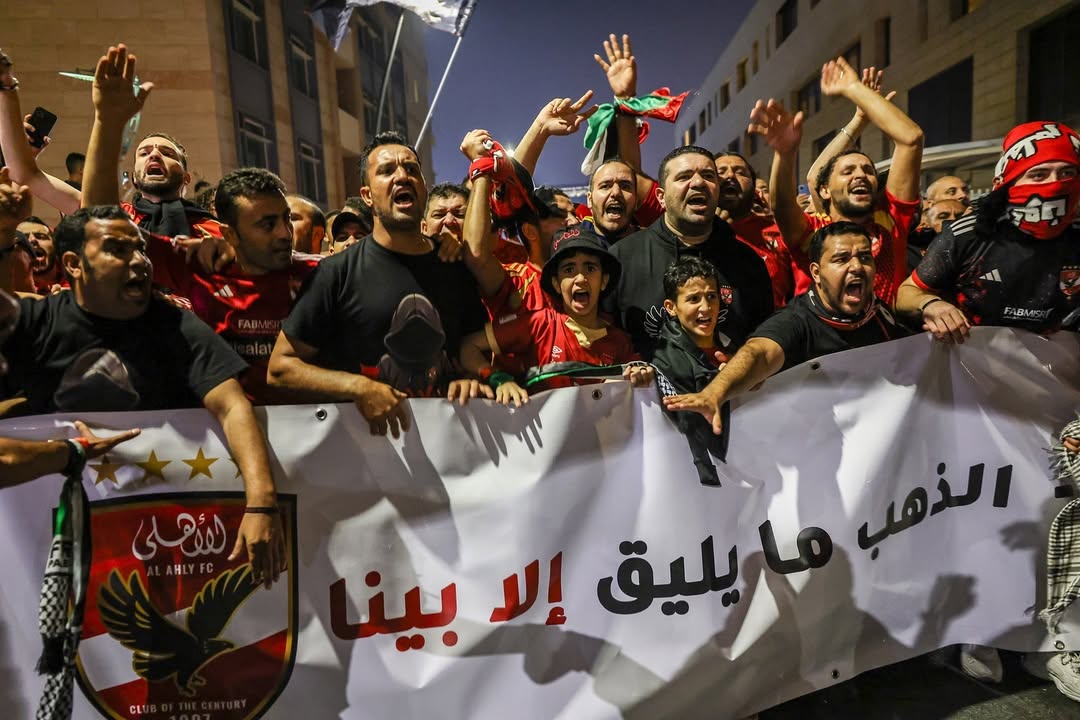Qatar’s most decorated Olympian spoke with Doha News about his family with ‘sporting DNA’, the build up to Paris, and his brother Meshaal’s celebrations.
There is nobody quite like Mutaz Barshim in his family, in Qatar or at the high jump event in the Olympics.
He is the boy from Doha who headlined global news after sharing an Olympic high jump gold with fellow competitor Gianmarco Tamberi in Tokyo 2020. He is the high-flying Olympian, who runs with sports sunglasses and takes on gravity. He is the man who has turned into a national icon, setting his bars higher and managing to jump over them every time. He is also the cream of the crop in a household with sports running in its veins.
It really felt like the crowning of a coveted career as Barshim stood tall at the podium in Paris, awaiting his fourth Olympic medal in as many appearances. One would not have expected Qatar’s Golden Falcon to take off and overshoot the bar and do it well enough to bag a bronze, considering his injury in the qualifying, at the ag of 33-years-old.
“This season was difficult but the support from home was enormous,” Barshim tells Doha News. “You cannot let your people down. You need to bite your teeth and keep going.”
As Barshim sat in front of a lobby full of journalists on Thursday, he revealed the extent of his injuries in the build up to the games in Paris, his late night flights to visit the doctor and the last minute rehabilitation to get him up and jumping. “I could not even run three days before I was supposed to jump at the Olympics,” he said.
That was also apparent during the qualifiers on August 7. After seamlessly completing his first three jumps, he fell on his knees, holding his calf muscle in the run-up to the last jump and was unable to take off.
The triple World Champion then timed his jump perfectly to clear 2.27 meters in his next best jump of 2.34 meters in the finals, carrying the rhythm to register his season. Four days later, he won bronze.
It was the sheer longevity and the bounce back to win medals over four different editions of the premier event, despite suffering a career-threatening ankle ligament damage in 2018, that made it ever so special.
“It requires tough mental strength to come back from injuries and keep giving your best,” he said. On Thursday, he hinted more might be on display and that he plans to show up as prepared as ever in the World Championships next year.
Barshim now stands as Qatar and the high jump category’s most decorated Olympian, with a gold, two silvers, and a bronze to his name.
Growing up in Doha as a 15-year-old who took up the sport just because it looked fun, he could have never imagined scaling all these heights.
Following his father Essa Mohamed Barshim to training was how Barshim stumbled into athletics in the first go. Almost all of his siblings followed their father to join track and field, except Meshaal, who now is Qatar’s go-to goalkeeper.
“Growing up in a sports family and seeing my father compete on TV, he was my role model,” Barshim says of his father.
Except, he has surpassed expectations, even for a family with such a rich sporting bequest. “I wanted to be like him but today, I think I am better than him,” he quips.
Now a father, it was fitting that Barshim brought his son Josef to bask in the applause at the Stade de France in Paris.
His celebration, however, was different this time around. A crown on his head instead of a cap, a bronze medal draped around his neck, a Falcon-like hand gesture and his signature sports sunglasses before his eyes.
His sunglasses, in particular, have become so emblematic that they now also belong in other high-profile celebrations, including that of his goalkeeper brother Meshaal’s.

“He has to stop stealing my glasses,” Barshim jokes as he talks about his brother’s celebration after winning the AFC Asian Cup earlier this year with Qatar.
“But I love him and hope he continues to succeed – it all starts with the family for me.”







